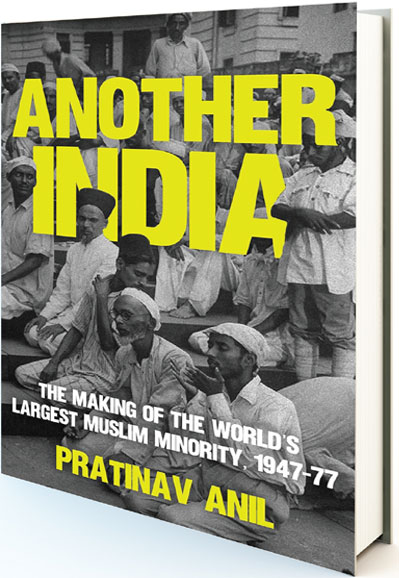Pushed to the Edge
How independent India privileged majoritarianism over syncretism. An extract
Pratinav Anil

The Congress only permitted, so to speak, Muslim politics in Hyderabad in the late fifties—at a time and on terms of its choosing. The AIMIM leadership was released from prison in 1957, when the Congress, cynically enough, felt it could benefit from a counterweight to the PDF, whose socialist platform was winning it considerable subaltern Muslim support. The decision the previous year to hive off parts of Hyderabad state to Bombay and Mysore, reducing by 40 per cent the Muslim proportion of the population in the rump Andhra Pradesh, cushioned the potential blow. Nehru’s thoughts of his legacy must not be discounted. A decade in power and soon to enter his eighth, the premier released not only Razvi, but also, a few months later, another recalcitrant Muslim, Jammu and Kashmir’s Sheikh Abdullah, from his prisons.
Appointing Abdul Wahid Owaisi as his successor, Razvi decided to vote with his feet. From the safety of his retirement in Karachi, he could reflect on his prescience. For Owaisi, quickly making up for the lost decade, at once found himself the victim of a smear campaign. Accusations flew in from every shade of nationalist Muslim opinion: Congress MPs and MLAs, councillors and JUH clerics, the All-India Shia and All-India Momin Conferences. The objective was not to oppose but to obliterate the Majlis, as if it were a foreign foe. The ‘communalists [of] the AIMIM will be shown their place’, V.K. Krishna Menon, the defence minister declared in February 1958.
Clearly, Owaisi had rattled some nerves. In March, he was placed under preventive detention. Habeas corpus was promptly denied. Disinclined to present even a fig leaf of judicial independence, the courts fully supported the government’s decision, ruling that while Owaisi’s offending speech was in itself ‘unobjectionable, the spirit beh
Subscribe To Force
Fuel Fearless Journalism with Your Yearly Subscription
SUBSCRIBE NOW
We don’t tell you how to do your job…
But we put the environment in which you do your job in perspective, so that when you step out you do so with the complete picture.







